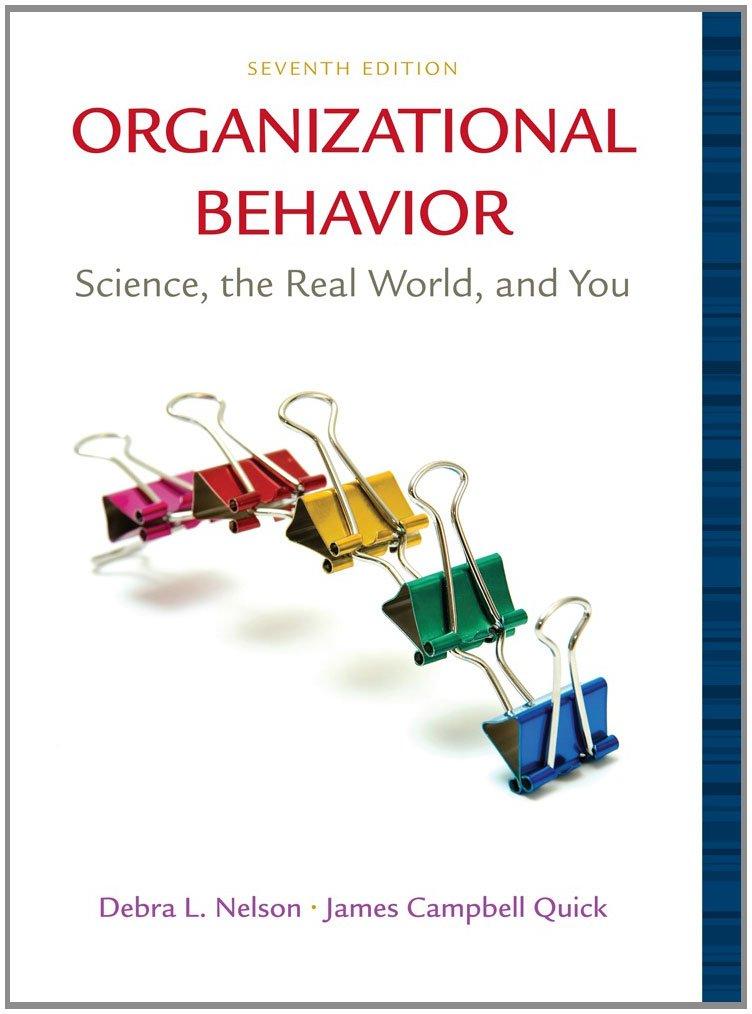The purpose of the Ethical Dilemmas is to encourage students to develop their awareness of ethical issues
Question:
The purpose of the Ethical Dilemmas is to encourage students to develop their awareness of ethical issues in the workplace and the managerial challenges they present. The dilemmas are set up to present situations in which there is no clear ethical choice. The goal for the instructor is to guide students through the process of analyzing the situation and examining possible alternative solutions. There are no “right” answers to the questions at the end of each scenario, only opportunities to explore alternative generation and generate discussion of the appropriateness of each alternative.
In order to address the Ethical Dilemmas, a brief discussion of the referenced ethical theories is necessary. These theories are discussed in more detail in Chapter 2 of the textbook.
Consequential Ethical Theory
Consequential, or utilitarian, ethical theory was first formulated in the eighteenth century by Jeremy Bentham and later refined by John Stuart Mill. Consequentialists look beyond self-interest to consider impartially the interests of all persons affected by an action. The theory emphasizes consequences of an action on stakeholders, rather than the act itself (rules-based theory) or the intention of the actor (character theory). Consequentialists recognize that trade-offs exist in decision making. Consequential theory is concerned with making decisions that maximize net benefits and minimize overall harms for all stakeholders. The ultimate objective is to gain the greatest good for the greatest number.
Rules-Based Ethical Theory
Rules-based (deontological) ethical theorists base ethical decision making on moral rules, or principles. An example of such a moral rule might be the widely-known admonishment to “Do unto others as you would have them do unto you.” Rules-based ethics emphasizes the rightness of the act itself, rather than its consequences (consequential theory) or the intentions of the actor (character theory). Rules bind one to duty, and observing the rule is paramount even if it leads to negative consequences for those affected by the decision.
Character Ethical Theory
Character ethical theory (also called virtue ethics but specifically NOT virtue theory, which is something else altogether) dates back to the ancient Greek philosophers, especially Plato and Aristotle. Judgment is exercised not through a set of rules, but as a result of possessing those character traits, or virtues, that enable choices to be made about what is good and holding in check desires for something other than what will help to achieve this goal. Thus, character ethics emphasizes certain qualities that define appropriate behavior and the right action to take. The focus is on acting from right intentions; that is, because one is deeply and thoroughly disposed to act from a desirable character trait, rather than on the acts themselves (rules-based) or the outcomes of the actions (consequential theory).
1.Using consequential, rule-based, and character theories, evaluate Melissa and Brian’s options.
2.What should Melissa and Brian do? Why?
Step by Step Answer:

Organizational Behavior Science The Real World And You
ISBN: 9781111416218
7th Edition
Authors: Debra L. Nelson, James Campbell Quick





